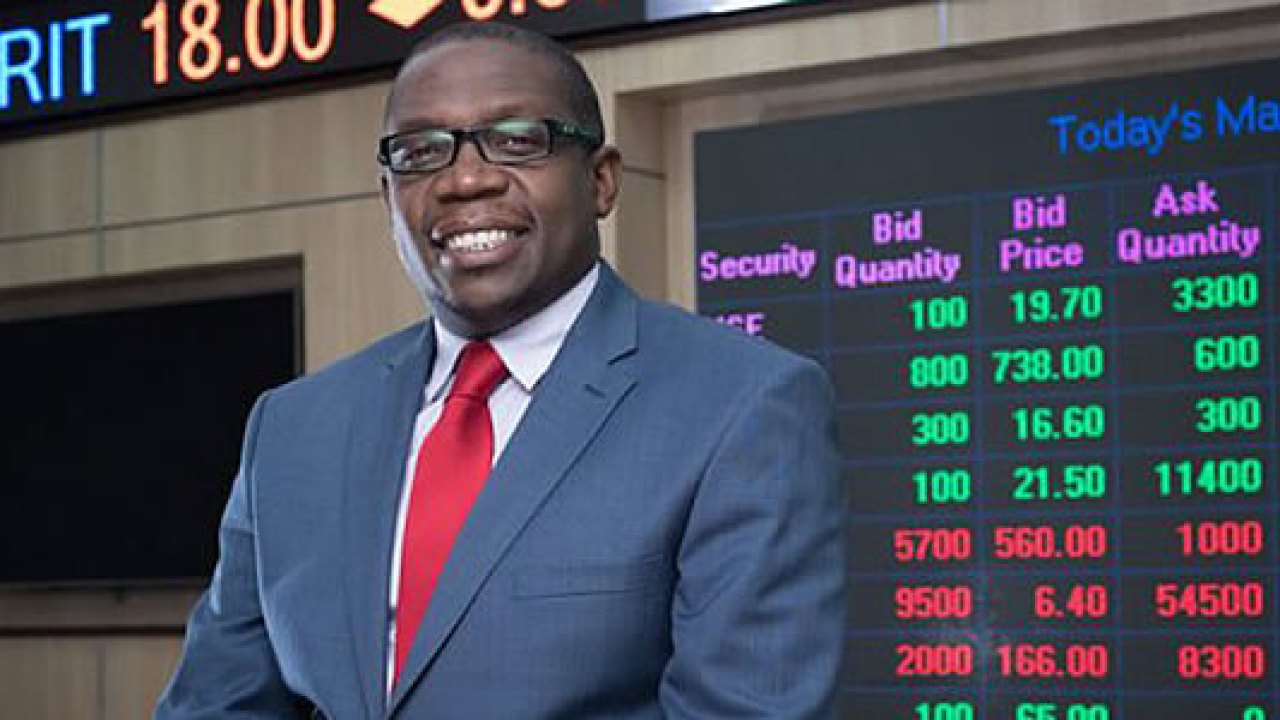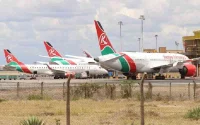The NSE 20 Share Index is a price weighted index calculated as a mean of the top 20 best performing counters at the bourse. Constituent companies currently include the likes of Safaricom, Equity, East African Breweries Limited (EABL) , British American Tobacco (BAT) and Kenya Commercial Bank (KCB) among others.
It tracks the performance of 20 best performing companies at the Nairobi Securities Exhange (NSE). Historical data over the past decade, however, tells a worrying story.
From highs of 5491.37 in February 2015, the index has fallen spectacularly, and has been trading around 1878 as of April 2021.
The situation is representative of a depressed market, and coupled with Kenya’s rising external debt and cost of living over the same period, poses various questions. In an interview with American Youtuber The Wandering Investor, NSE CEO Geoffrey Odundo offered several reasons for the steady decline.
He further sustained his push for the government to stimulate the market and raise up to Ksh792 billion by reducing its stakes in various listed firms and selling part of its stake in various parastatals via the listing route – a move that would also reduce reliance on external debt.
- Global Commodity Crash
Explaining why the 20-share Index has plummeted, Odundo first noted the fleeing of foreign investors from the NSE in 2015 as a result of the global commodity crash.
Global commodity prices fell 38% between June 2014 and February 2015.
“70% of our trading comes from the international market…2015 was a good year, we had peak performance across all counters but then we got affected by external shocks.
“We had the global commodity crash – what that did is that a lot of investors transferred or reallocated their capital to fixed income assets internationally and that affected our market, prices started coming down and that continued for a while
2. Donald Trump and Rising Interest Rates in the West
Odundo further noted that the 2016 election of former US President Donald Trump and the implementation of his ‘America-first’ policies drove reallocation of capital away from frontier markets such as Kenya.
He also noted rising interest rates in the West over the same period.
READ ALSO>>>>>Govt Turns Down NSE’s Ksh792 Billion Offer
“Money left the frontier markets and ourselves, we were lightly affected because we’re a key constituent of that market,” the NSE Chief Executive noted.
3. Rising Kenyan Taxes
Odundo noted the introduction of a raft of new taxes over the past five years which drove up the cost of trading, further contributing to the market’s slide.
He cited the Capital Gains Tax which was re-introduced in Kenya with effect from 1st January 2015 after having been suspended in 1985. CGT is chargeable on the whole gain which accrues to any individual or corporate body on the transfer of property situated in Kenya, at a rate of 5% of the gain.
“That (Capital Gains Tax) raised the cost of trading, a few other taxes as well raised some level of apathy,” Odundo noted.
Other taxes introduced over the same period include 16pc VAT on petroleum products in 2018 and Digital Services Tax and minimum tax which took effect in January 2021.
4. Lack of New Listings
Odundo admitted that the last ‘major’ IPO on the NSE was Safaricom in 2008, reiterating his call for the government to reduce its stake in some companies while retaining strategic influence, which the National Treasury has cited in their rejection of the proposal.
READ>>>>>Beauty Firm Flirts With NSE In Quest to Raise Capital
In a bid to drive more listings, NSE has undertaken programs including its Ibuka incubator for select firms with high growth potential with a view to listing. Among companies which have been listed following the program is Homeboyz, the entertainment company owned by the Rabar brothers which went public on the Growth Enterprise Market Segment (GEMS).
The listings so far have, however, failed to make a splash on the market.
“We are really trying to find an exciting market event, hopefully get a big IPO coming soon. Kenyans respond to that. The last large one we had was in 2008 (Safaricom),” he stated.
“Our current strategy is taking back that conversation to the government…you can raise over Ksh700 billion here through exits, and you don’t have to exit everything. There’s some companies that even if they went to 25% they still have strategic influence,” he went on to note, asserting that it was a better capital raising strategy for the government compared to entering the debt market.
5. Rise of Interest Rates on Fixed Income
Odundo noted that further capital reallocation by investors took place on the back of high interest rates on the fixed income side in Kenya.
Fixed income broadly refers to types of investment security that pay investors fixed interest or dividend payments until its maturity date. At maturity, investors are repaid the principal amount they had invested. Government and corporate bonds are the most common types of fixed-income products.
“The Central Bank were borrowing money from the domestic market at very high rates so the people would transfer the funds there, it left the market a bit exposed and that led to the decline of prices, and as well the index came down,” Odundo explained.
6. Repeat Elections in 2017
Odundo also cited the effect of political uncertainty in the country, particularly in 2017.
President Uhuru Kenyatta’s win in the August 2017 was declared invalid, null and void by the Supreme Court after an opposition challenge. The opposition led by ODM leader Raila Odinga boycotted the repeat election and went on to swear in Raila as the ‘People’s President’.
Uhuru and Raila eventually made up on March 9, 2018 and initiated the Building Bridges Initiative (BBI) process which has birthed various proposals meant to foster inclusivity and deal with post-poll violence cycles.
Odundo expressed confidence that the market would rebound after the current Constitutional reform and election cycle was complete, describing the present as a good entry point for investors.
Watch the full interview below:











Leave a comment